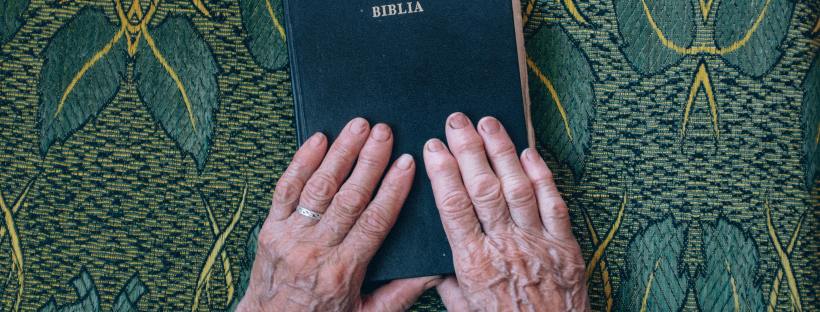Post 3 of 11 in a series on the 10 Principles of Older Adult Ministry (banner image by Raul Petrie from Unsplash)
“…those who are religiously/spiritually committed and engaged in the faith community; [and] those who are less religiously committed and participate occasionally in the faith community.” In their circles of connection, our congregants will also encounter, “…those who have left established churches and religion, but are still spiritual and spiritually committed, [and] those who are unaffiliated, uninvolved, and claim no religious identity.” (From Honoring and Enriching the Lives and Spiritual Journeys of Older Adults)
It is a good reminder that not every older adult has a church background. We may assume they grew up in church or have attended more Bible studies than the Pastor – but that simply is not true in all cases. We must provide varying opportunities for engagement, Bible study and worship.
Middle-aged people who are having religious stirrings for the first time, or at least for the first time since they were young may find these urges confusing and even troubling, especially if they moved away from faith earlier in life.

These seekers usually believe their spiritual yearnings are unusual, but they aren’t. Research from the United States shows that religious attachment commonly decreases in young and middle adulthood, but then increases through one’s 40s and beyond. The theologian James Fowler explained this pattern in his famous 1981 book, Stages of Faith. After studying hundreds of human subjects, Fowler observed that as young adults, many people are put off by ideas that seem arbitrary or morally retrograde, such as those surrounding sexuality. They may also become disillusioned by religion’s inability to explain life’s hardest puzzles; for example, the idea of a loving God in the face of a world full of suffering.
As they get older, however, people begin to recognize that nothing is tidy in life. This, according to Fowler, is when they become tolerant of religion’s ambiguities and inconsistencies and start to see the beauty and transcendence in faith and spirituality—either their own faith from childhood, or some other. Fowler’s later research asked whether the stages he found in the 1970s and ’80s held against modern developments (such as decreasing religious participation in the U.S.); he observed that they did.

For those who embrace faith at this stage, it is a joyful epiphany; religious and spiritual adults are generally happier and generally suffer less depression than those who have no faith. And the benefits of finding faith as an adult go beyond life satisfaction, according to research on the subject: Religion and spirituality are also linked to better physical health. This could be in part because the majority of studies find practitioners are less likely than others to abuse drugs and alcohol.[1]
As we plan Adult Education classes, studies and worship it is imperative to remember our older adults may have grown up in the church, may have fallen away from the church, and are now revisiting or perhaps have never taken a Christian Education class. We should be aware of the vast experiences and biblical understanding each participant may have. It cannot be assumed every older adult knows who Rahab, David, Esther, Paul or Lydia are, their stories or how God used them to share God’s message of love and hope. It may be better to circle back to the basics to help those who may not have a lot of biblical background, and while doing this you are reviewing and helping other “veteran learners” to remember without making anyone feel uncomfortable.

[1] https://www.theatlantic.com/family/archive/2020/08/guide-exploring-religious-faith-adult/615220/
